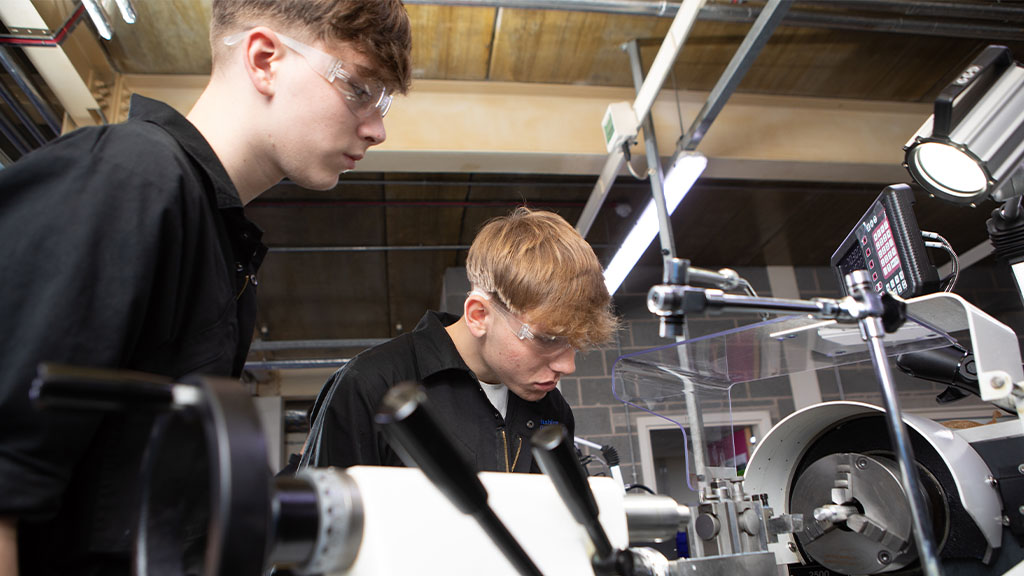Course Overview
Alternative Academic Qualifications (AAQs) offer both theoretical and practical learning, they perfectly complement A-levels as a part of a mixed programme of learning, helping to bring more theoretical learning to life.
AAQs are equivalent in UCAS points to one A level, and offer vocationally-relevant learning in a specific subject area.
The qualification is designed to be taken alongside A Levels as part of a study programme
and can link to learning in A Levels such as Maths or
Physics.
This course will equip you with both theoretical understanding and problem-solving skills, preparing you for progression to university, apprenticeships, or employment in careers such as mechanical engineering, electrical engineering, or civil engineering.
What You Will Study
The engineering course specification includes a number of units, including content related to:
- Engineering principles (the physics behind engineering)
- Mechanical and electrical systems
- Emerging technologies
- Engineering project management
- CAD (Computer-Aided Design)
- Engineering Design
- Health and safety regulations in engineering
- Sustainability
In addition to classroom-based theory lessons, you will take part in hands-on learning within our workshop areas. This course gives students the chance to develop the following skills:
- Managing yourself and your learning
- Interpersonal skills
- Solving problems and strengthening critical thinking
- How You Will Be Assessed
Students on the course are assessed in three ways: Over 50% of the course is assessed through external assessments set by the exam board. There are also internal assignments and projects, and synoptic tasks, which are set to assess how well students can take a project management approach to their coursework, bringing together understanding of theory and practical application.
- Entry Requirements
5 GCSEs at Grade 9-5, including English, PLUS Maths and Science at Grade 6
- Further Study
Higher Education to study for degrees in: mechanical engineering, electrical engineering, aerospace studies or civil engineering.
Progression onto apprenticeships or engineering related employment.




